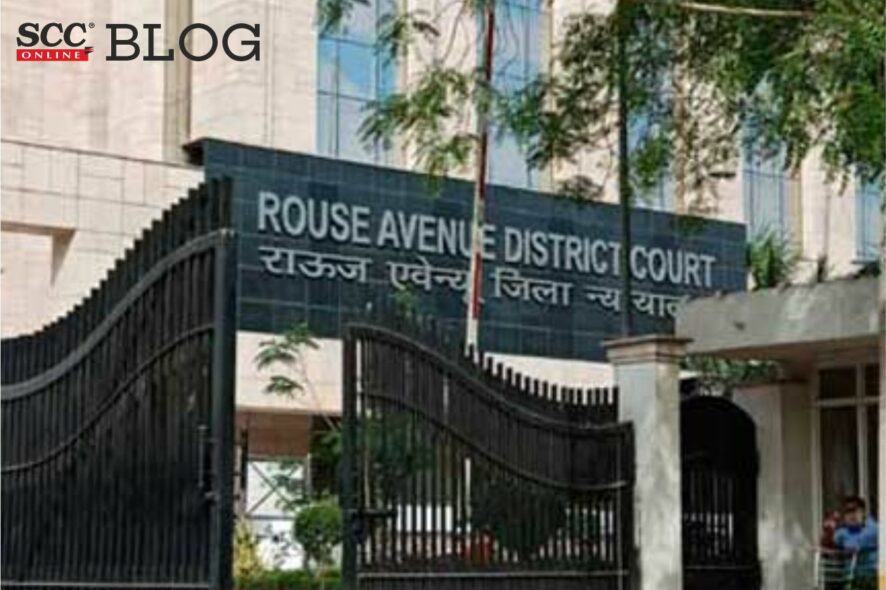Rouse Avenue District Courts, Delhi: In a case relating to illegal interception/monitoring of telephone calls of National Stock Exchange ‘NSE' employees by iSec Services Pvt. Ltd, a privately owned company under the guise of contract of Study of Cyber Vulnerabilities, whose approval was given by Chitra Ramakrishna (‘applicant') and paid Rs. 4.54 crore to iSec Services as a consideration thus, attracting various offences under different statutes, Sunena Sharma, J. denies bail to the applicant as the material placed on record was sufficient to prima-facie show that the applicant was the major role player in the entire conspiracy as well as in projection of proceeds of crime as untainted money.
The applicant was associated with NSE as Deputy Managing Director/Joint Managing Director/Managing Director of NSE during the period of offence between 2009-2017 and said illegal activities ceased to exist after the applicant demitted office as Managing Director.
In the instant case, the applicant in connivance with Ravi Varanasi, Vice President NSE and Mahesh Haldipur (Head Premises) conspired together with iSec Services for illegal tapping of phone calls and snooping of NSE's employees under the guise of a legal contract which was given the name of Study of Cyber Vulnerability.
The telephone numbers to be monitored were purportedly identified by the applicant and conveyed to Ravi Varanasi who in turn provided the same to Mahesh Haldipur who further gave it to iSec. The suspicious numbers identified by the applicant were given to iSec to be put on recording and iSec used to prepare the transcripts of the recorded conversation of said numbers and share it with the applicant and other top officials of NSE.
Central Bureau of Investigation registered FIR under Section 120-B read with Section 409 & 420 of Penal Code, 1860 (‘IPC'), Section 20, 21, 24 & 26 of Telegraph Act, 1885, Section 3 & 6 of Wireless Telegraphy Act, 1933, Section 13(2) read with Section 13(1) (d) of Prevention of Corruption Act, 1988 and Section 69-B, 72 & 72-A of Information Technology Act, 2000 against iSec Services Pvt. Ltd. & other accused persons including the applicant.
The Enforcement Directorate (‘ED') also registered a case under Prevention of Money Laundering, 2002 (‘PMLA') for the offence of money laundering as defined under Section 3 and punishable under Section 4 of PMLA. The warrants were issued and the applicant was arrested by ED. Thus, present bail application was filed under Section 439 Criminal Procedure Code (‘CrPC') read with Section 45 of PMLA, 2002.
Placing reliance on Rohit Tandon v. Enforcement Directorate, (2018) 11 SCC 46, Anirudh Kamal Shukla v. Union of India 2022 SCC Online All 176 and Ranjitsing Brahmajetsing Sharma v. State of Maharashtra (2005) 5 SCC 294, the Court noted that monetary loss was caused to NSE by allowing the iSec to gain money out of illegal tapping of phone calls by using the direct lines of MTNL and for said purpose software and hardware of recording/monitoring server which was purchased by iSec for NSE from Nexco Techno Solution, were allowed to be installed in the upper basement of NSE building, under the guise of a legitimate contract of Study of Cyber Vulnerabilities. It is only with the active assistance and help of applicant and other top officials of NSE, that the iSec was able to generate money to the tune of Rs. 4.54 crores and give it a colour of untainted money by showing it to have been through a legitimate source.
On the contention that provisions of Section 13(1)(d) read with 13(2) of Prevention of Corruption Act, 1988do not apply, as the applicant is not a public servant within the meaning of the provisions of PC Act, the Court rejected the contention by relying on Delhi Stock Exchange v. K.C. Sharma LPA No. 331/199 2000 Vol. XCIII DLT 2333, wherein it was held that the Central Government has deep and all-pervasive control over the functioning of stock exchanges. It was further held that to ascertain if an ‘authority or an institution of self-government' established by notification or an order of the Central Government is a Public Authority or not, the main thrust should be not upon the composition of the company but upon the duties and functions performed by it.
On the contention that the applicant being a woman is entitled to the benefit of the first proviso to Section 45 (1) PML Act, the Court rejected the contention noting that extension of said benefit cannot be claimed as a matter of right as the discretion lies with the court to exercise such powers only in suitable cases.
Thus, the Court remarked that when the alleged offences were committed, the applicant was holding key positions of DMD/MD/JD in NSE and was actively involved in all important affairs of the company. She was the one who accorded approval to the façade contract of Study of Cyber Vulnerabilities and had dominion over the properties and funds of the NSE.
Thus, the Court held that there is absolutely no reasonable ground to record that the accused/applicant is not guilty of the offence alleged against her especially at this stage when the investigation is not yet complete.
[Chitra Ramakrishna v. Directorate of Enforcement, Bail Application No 201 of 2022, decided on 29-08-2022]
*Arunima Bose, Editorial Assistant has put this report together.







